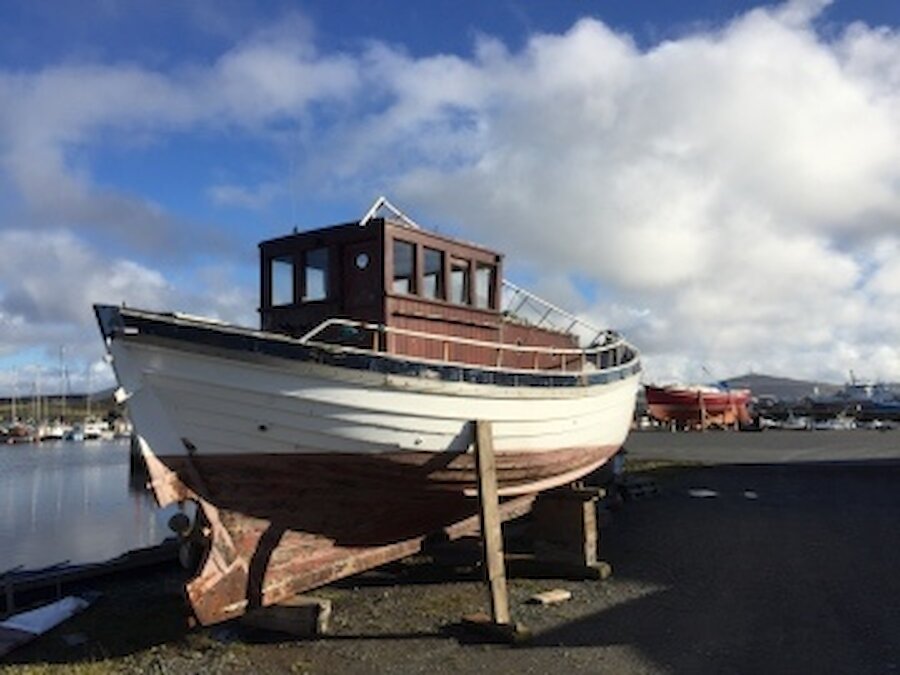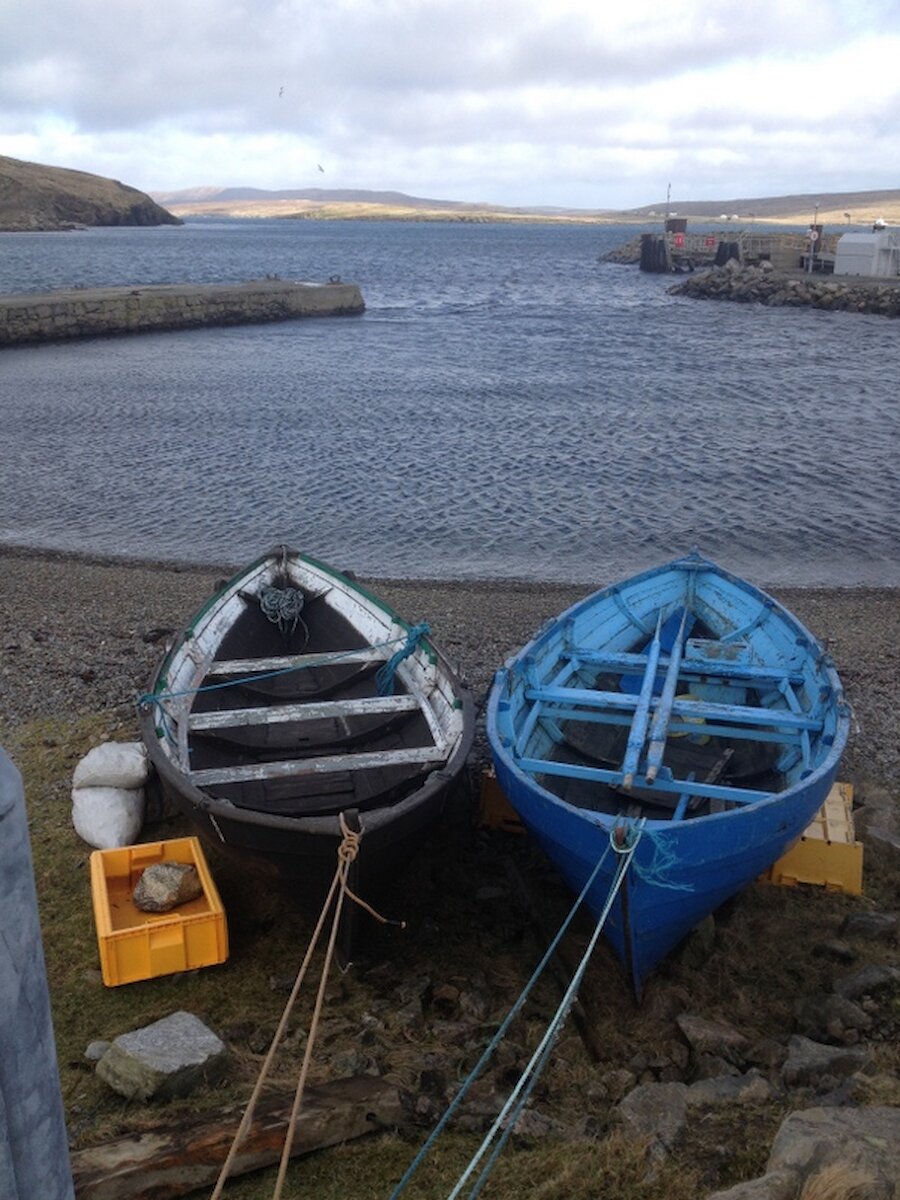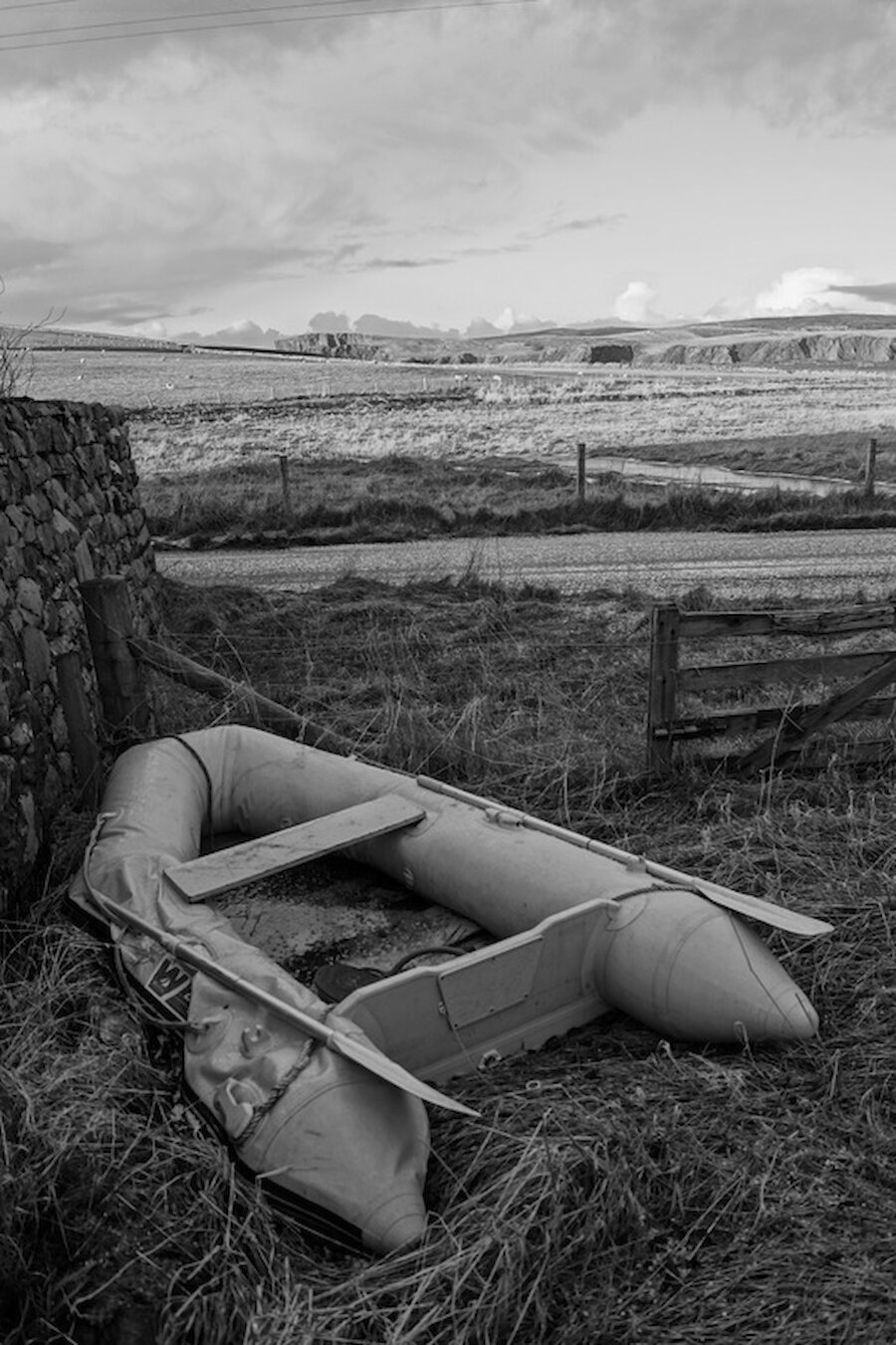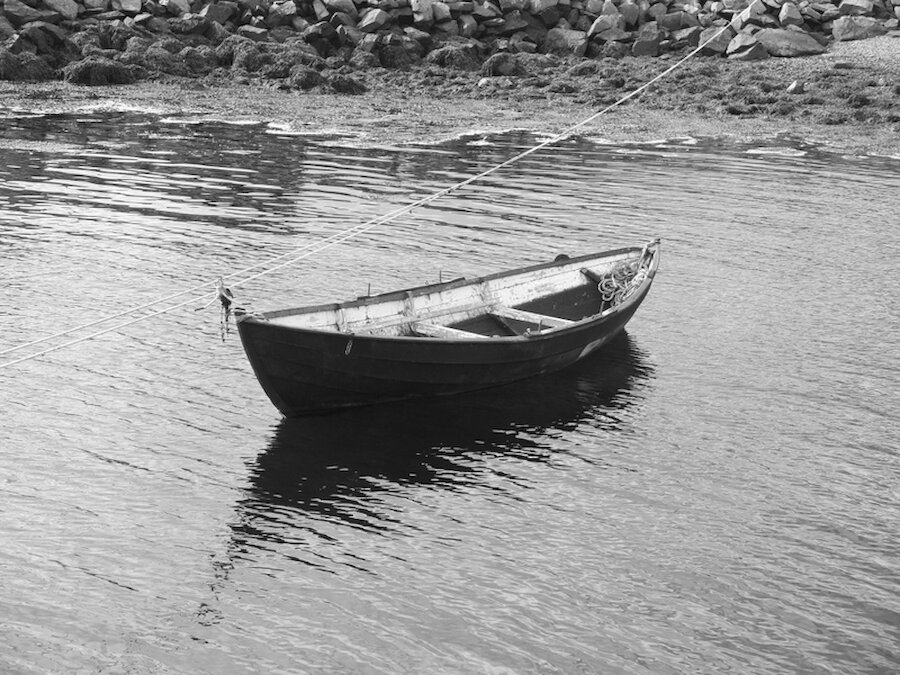A quite wise, or at least relatively clever, man said to me, a few weeks after my arrival in the isles from points sooth a quarter-century ago, that I would have to decide where I stood on boats. Not, as it were, making sure I kept my feet amidships so as not to cause a capsize, but whether or not I was truly, madly deeply ‘boaty’.
“In Shetland,” he said “people are either massively boaty, or else they hate boats with a great hatred and avoid them at all costs.”
I have since found this to be an overstatement, but with a grain of truth in it that pertains not just to Shetland but to other island communities too. In a place where boats are essential to so many people’s livelihoods, not to mention for the transportation of goods and folk back and forward both within the archipelago and to The Land of Scots, you can fall in love with the sea and floating about on it. Or you can learn to hate it for the damage and discomfort it causes. You can put yourself into a state of denial, and pretend you live in, oh, I don’t know, Crieff, ostensibly the furthest point from the sea in Scotland. But it’s not easy.
I did not come from a boaty background, exactly, but I have always loved the sea and was brought up on the Clyde Coast, where my dad tried and tried to get me interested in dinghy racing. I had read everything written by Arthur Ransome and quite fancied the idea. He bought an Enterprise dinghy in which , for a few summers, I crewed. Ready about, Hee Haw Ho , he would cry or whatever it is you’re supposed to say when turning things around on the water.




